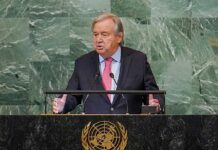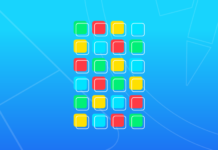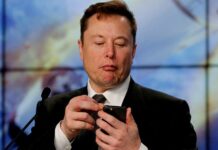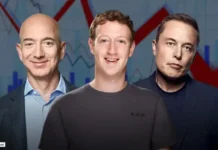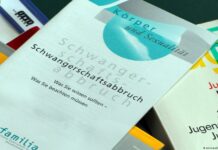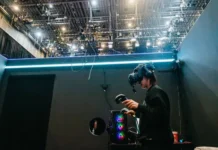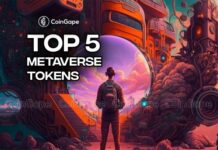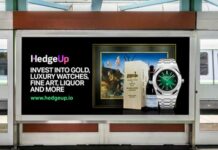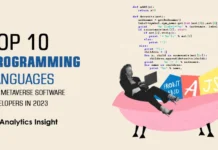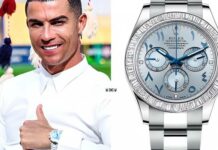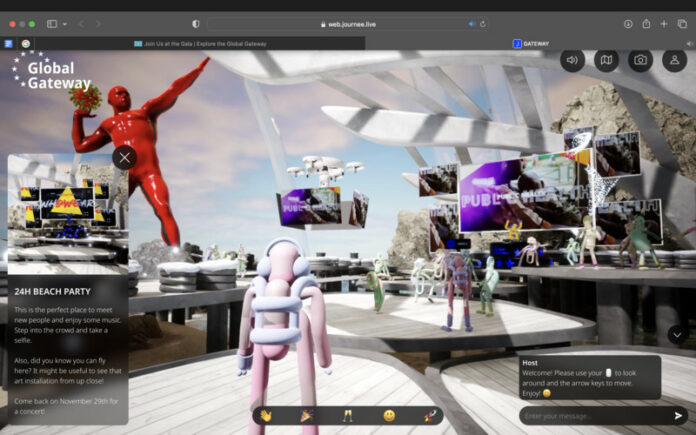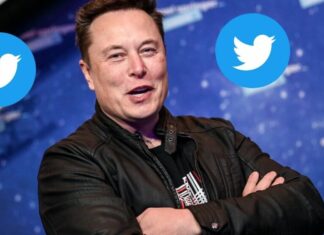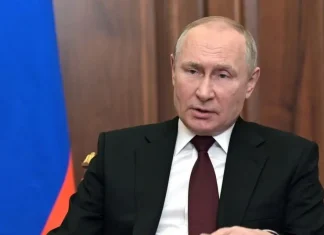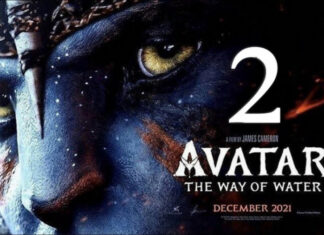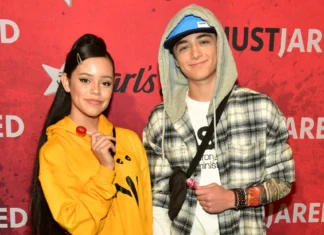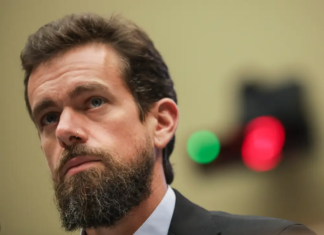A “metaverse gala” event organised for the European Commission in November attracted only a handful of confused ballon-like avatars.
The gala was a part of €387,000 metaverse project, financed by the European Commission’s foreign aid department, to get young people interested in the EU through a so-called Global Gateway campaign.
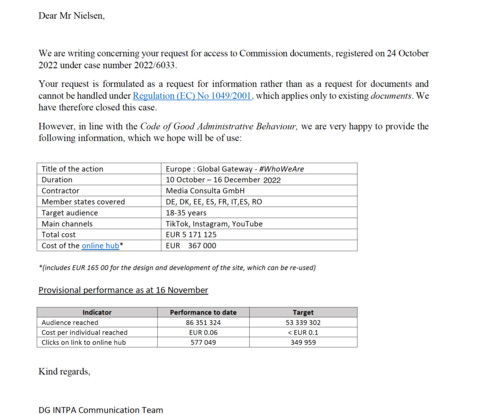
But that interest is difficult to gauge when few show up to an online party that Berlin-based tech firm, Journee, which had been subcontracted to design it, promised to connect people in a “revolutionary way”.
The European Commission may have been sold, but aside from this reporter and Vince Chadwick, another journalist who first broke the story, only a handful bothered to show up.
The European Commission says at least 300 connected to an event it says started at 8pm on 29 November, including an opening act by Romanian DJ Primărie, followed by an opening speech by Brooke Bailey.
However, EUobserver arrived just before 9pm and only saw around a dozen avatars at the time.
Each was attributed an avatar that resembles a wacky, waving, inflatable-tube man, as found at used American car dealerships.
The avatars roam through a digital landscape with undulating plants, a giant dragonfly, pulsating white lights that float through space, and sculptures and art installations.
“It may look like a giant trash bag. Well, a giant trash bag is actually what it is,” says a voice over when one approaches the first art installation.
The landscape is divided up into sections, from a grand hall, to areas where one can watch short documentary films, to a 24-hour beach party.
The beach party is composed of computer-generated avatars flopping about to looping rave music that never stops.
“Come back on November 29th for a concert,” read one digital billboard, in an apparent reference to a short DJ set that must have ended early.
Other events, billed as “upcoming”, include an eco-friendly coffee talk that is scheduled for 19 October 2022.
A rolling chat allows people behind the avatars to make comments for all to see, although most appeared virtually confused.
“hi, where’s the party? here? or is there another one?,” wrote Monica.
“not sure,” responded Derrick. “we were invited for some big opening,” he later added.
Speaking to only one other avatar appears impossible, curtailing the most basic form of communication.
In a tweet, Journee said they would be present at the gala event, to celebrate “all the effort we put into creating this immersive #metaverse experience.”
But it is unclear if they were present since confused questions posted in the rolling chat were left unanswered.
When pressed earlier to reveal figures on impact and engagement for their €387,000 creation, the commission declined.
So EUobserver filed a freedom of information request with the European Commission.
That request revealed that the European Commission had given over €5m to Media Consulta GmbH for a larger Global Gateway campaign that was launched 10 October and runs until 16 December.
Media Consulta GmbH then subcontracted the metaverse creation to Journee for €367,000, according to the document, and not €387,000 as announced by the European Commission.
But that same document also listed Spain twice in a grouping of countries covered by the wider campaign, which also includes Germany, Denmark, Estonia, France, Italy, and Romania.
As for impact, the released commission document says the link to the metaverse hub as of 16 November had 577,000 clicks.
A statement from the European Commission spokesperson services “the total number of visits to the interactive platform ‘metaverse’, from 10 October to 30 November currently stands at 128,000.”
Meanwhile, Media Consulta GmbH is spending the rest of the funds on TikTok, Instagram and YouTube.
The commission says the wider campaign had reached an audience of 86 million as of 16 November.
Cost per individual reached? That works out at the bargain price of “€0.06”.




